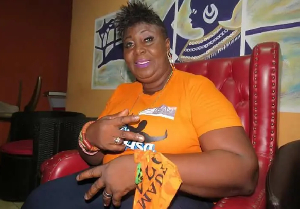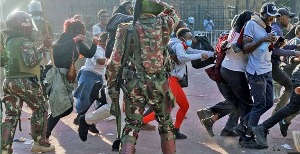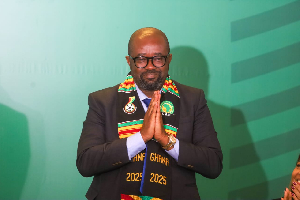A COVID-19 Corruption Risk Assessment Report has shown that the outbreak of the coronavirus pandemic in Ghana has created conditions in which corruption could flourish.
It indicated that the common cliché “we are not in normal times” by government officials served as an excuse to circumvent procurement regulations which heightened the corruption risk associated with governments response to fighting the pandemic.
The assessment dubbed, “Strengthening COVID-19 Accountability Mechanism (SCAM) was done by the Community Development Alliance (CDA) Ghana with support from the Commonwealth Foundation.
Mr Salifu Issifu Kanton, Executive Director for CDA, who launched the report in Accra on Thursday, said the risk of irregular procurement amidst the pandemic had the potential to prolong the negative effects of the pandemic on the lives of the poor and vulnerable populations in Ghana
“An Anti-Corruption tracker published on the website of Transparency International has flagged Ghana as one of the high corruption risk countries which have failed to put in place anti-corruption measures as part of the COVID-19 financial assistance and debt relief from the IMF,” he said .
He said the assessment which was carried out in March and April this year, was based on the review of the background documentation of a national legal documentation for legal framework for public procurement with focused on integrity related issues.
The assessment found out that Ghana had accessed and utilized a total of GHS 12.4 billion from sources such as the World Bank, International Monetary Fund (IMF), Ghana Stabilization Fund, Contingency Fund of the Stabilization Fund, Ghana Heritage Fund, Ghana Exim Bank and the COVID-19 Trust fund.
The IMF for instance released 1 billon dollars to the Government of Ghana to address fiscal and balance of payment needs
The World Bank firstly released 35 million dollars to fund the pandemic containment initiatives such as; case detection, confirmation, contact tracing, recording, containment, isolation and treatment, social and financial support to households, health system strengthening and community engagement and risk communication among others.
On a second released, the world bank again made available 65 million dollars to support critical activities such as laboratory equipment and chemicals, essential medical equipment and supplies, including test kits and PPEs,
The Ghana Stabilization Fund also gave Ghana government an excess fund of GHS 1.25 billion to fund the Coronavirus Alleviation Programme (CAP).
Ghana Exim Bank had gave out a 10 million dollar loan to produce emergency PPE gear , while the Ghana COVID -19 Trust Fund presented 9.8 million dollars to assist the poor and vulnerable.
It said the utilization of these funds under project risk irregular procurement practices could point to substantial breaches of anti-corruption laws, regulations and best practices.
“For instance contracts fowarded to four Ghanaian garment manufacturing companies which had been given loans of 10 million dollars through the Ghana Exim Bank to produce PPEs, face masks , medical scrubs , hospital gowns and head gears was without tender , the companies selected were also not registered with the Public Procurement Authority at the time of contract award,” it said.
The Covid-19 Corruption Risk Assessment Report however recommends that the government publishes all public contracts through open and competitive bidding.
It also suggests that Parliament should ensure scrutiny of all COVID-19 procurement and secure legal authorization of policy measures
General News of Sunday, 18 April 2021
Source: m.peacefmonline.com
COVID-19 pandemic increases corruption risks in Ghana - Report
Entertainment












